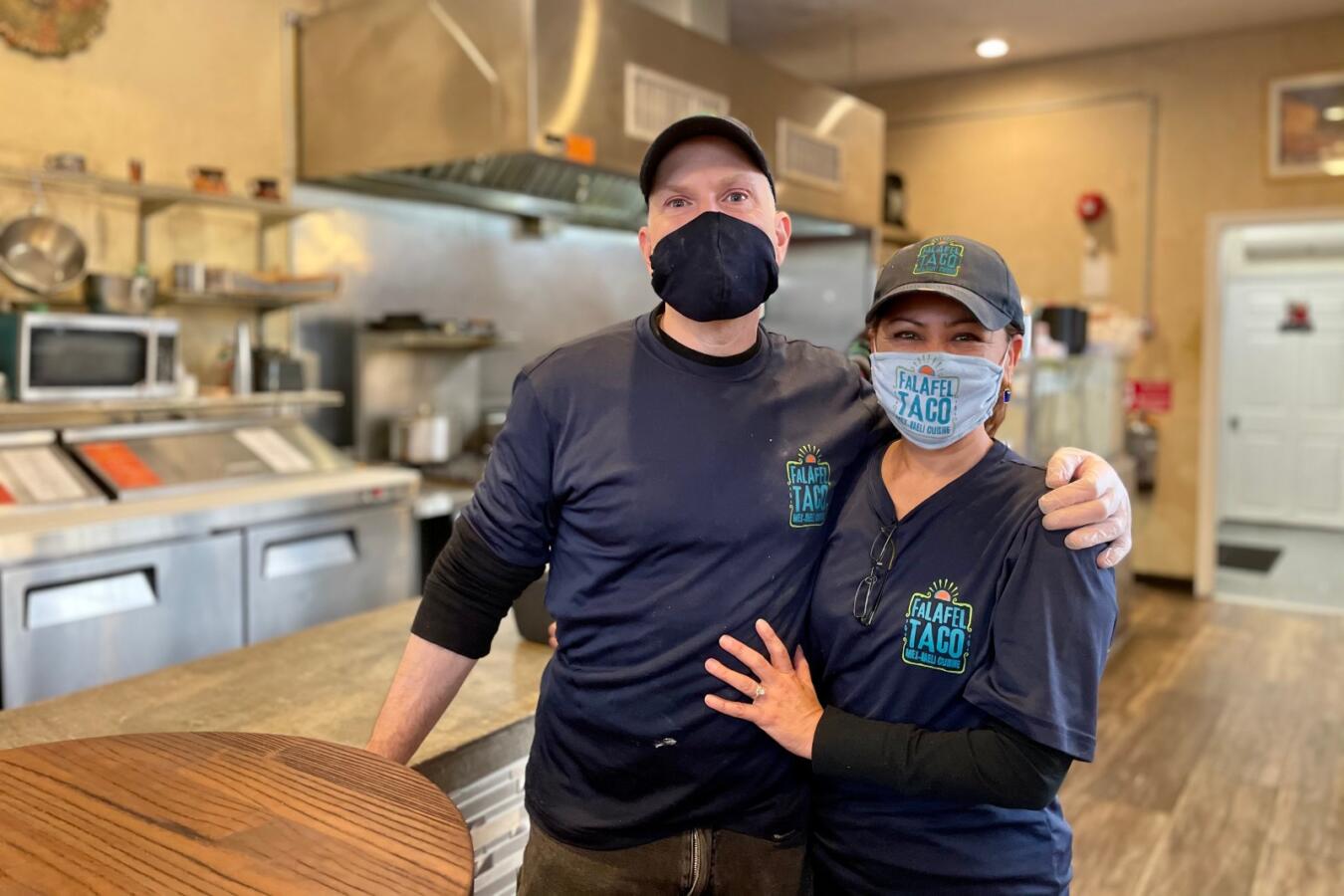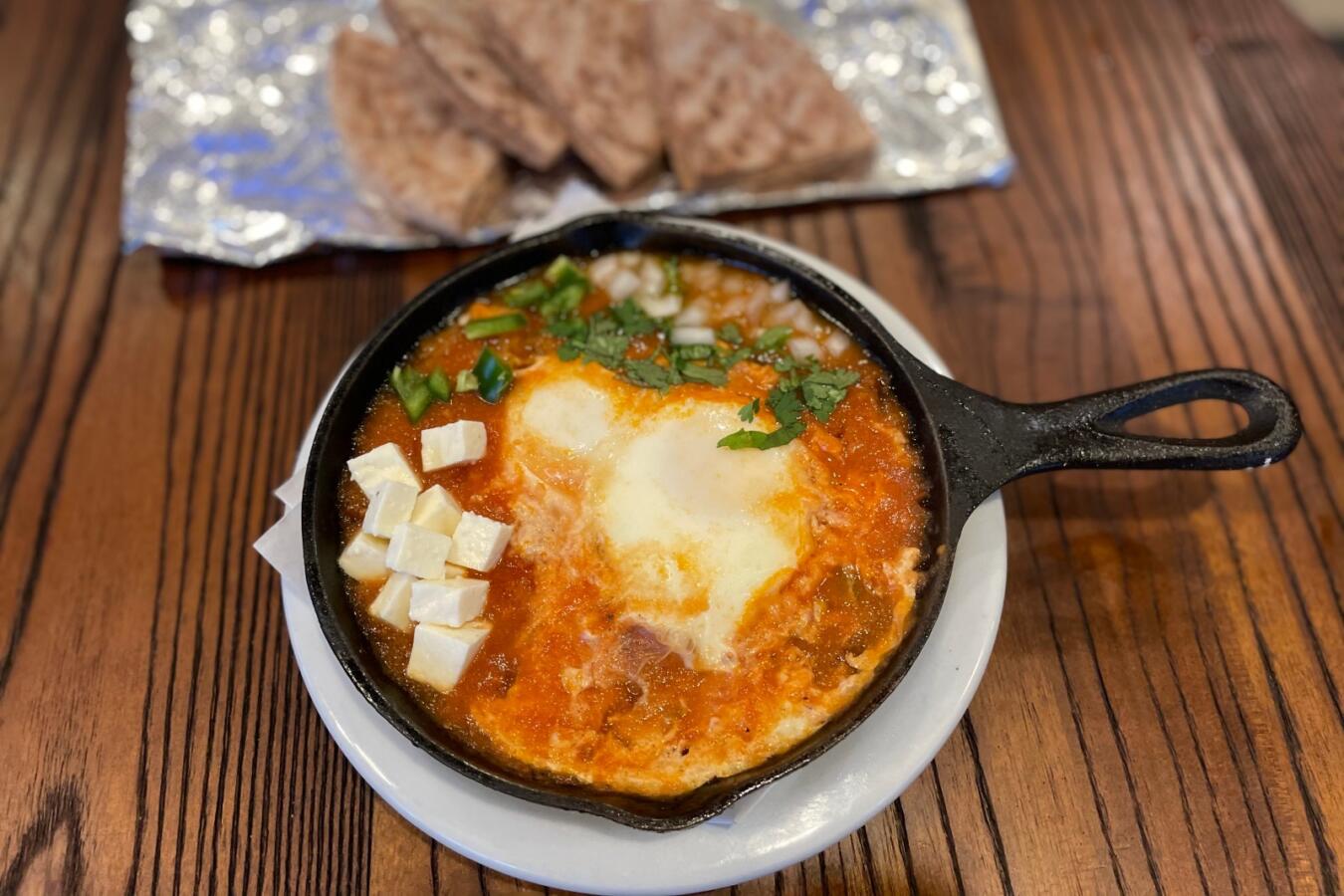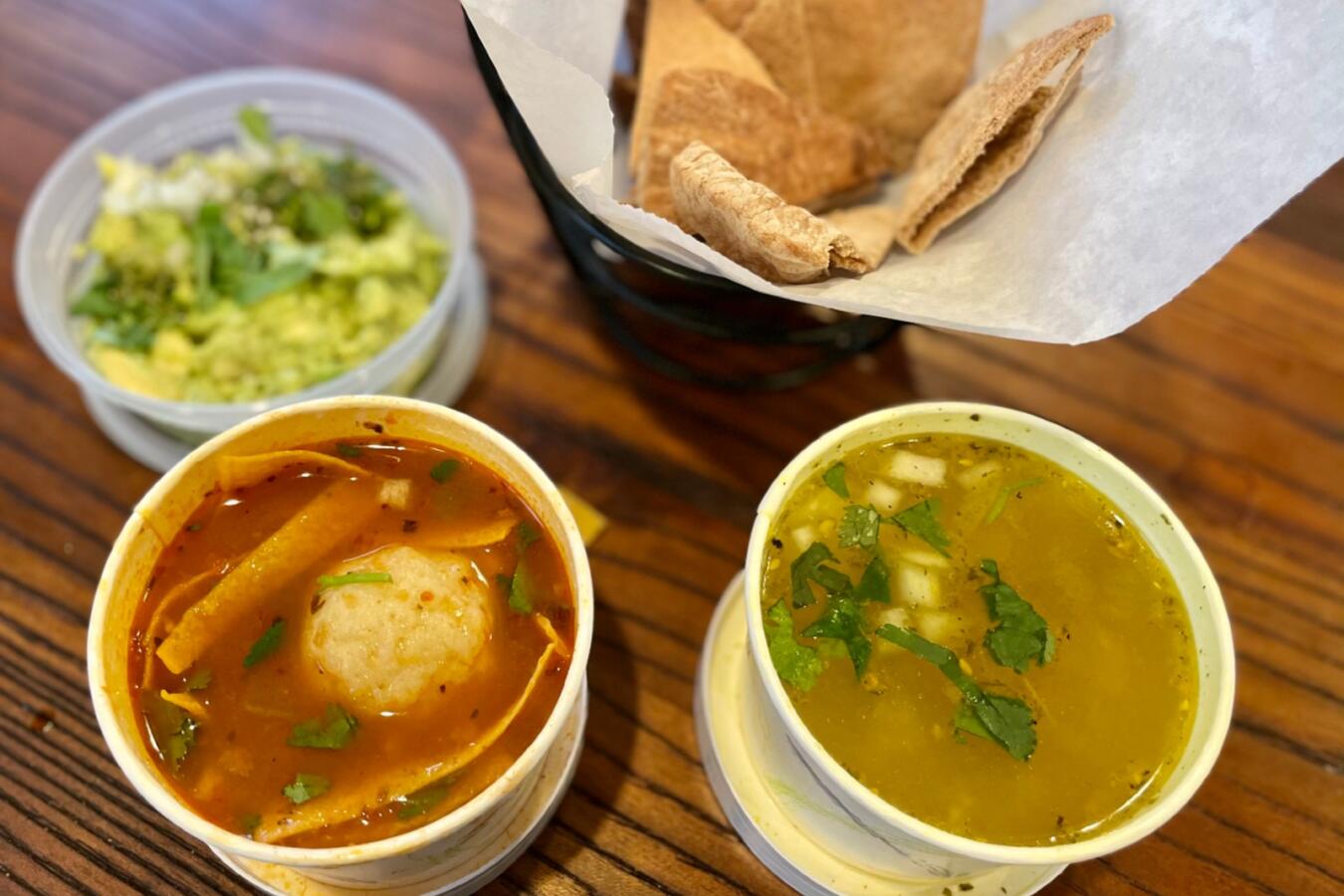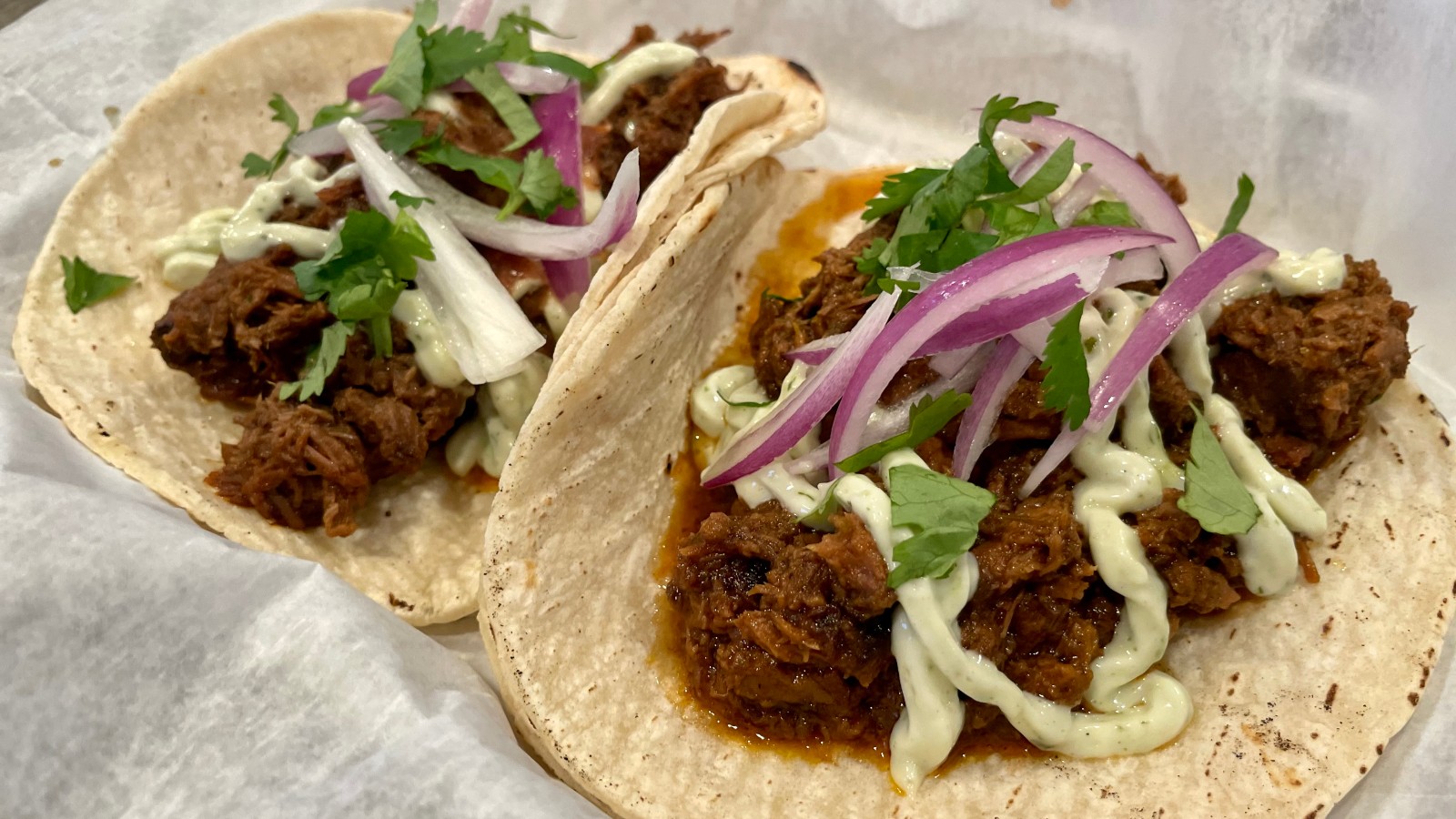What happens when you plop matzah balls into a bowl of tortilla soup? Top shakshuka with crumbled queso fresco? Build a tower of pita chip nachos by layering melted cheese, turkey shawarma, black beans, salsa, and chunky avocado hummus made from mashing together avocados, tahini, and zhug?
You have Mex-Raeli cuisine.
These Mexican-Israeli fusion dishes are just a few of the cross-cultural creations on Falafel-Taco’s menu. Located in Pleasantville, New York, 30 miles north of Manhattan, Falafel-Taco is a hole in the wall that’s making a major mark in Westchester County. Here, you can find all your Israeli favorites with a Mexican twist, like a sabich or chicken schnitzel taco, or Mexican latkes made with corn and topped with fresh guacamole.

Husband-wife team, Jonathan Langsam and Rosie Hernandez, always dreamed of opening a restaurant together but they couldn’t decide what type of restaurant. They began experimenting with blending the cuisines of Jonathan’s Jewish upbringing, the Mediterranean diet of Israelis, and Rosie’s Mexican heritage. With Jonathan’s background in culinary management from general managing JFK Airport and Rosie’s experience in bookkeeping, administration, and customer service at LaGuardia Airport, they turned their ambitious dream into a reality.
The Nosher celebrates the traditions and recipes that have brought Jews together for centuries. Donate today to keep The Nosher's stories and recipes accessible to all.
In 2018, Falafel-Taco was born. A year later, they won the Best of Westchester Award for Best Taco for their Ma Bett’s Old Clothes Taco, a corn tortilla filled with slow-cooked shredded brisket, roasted tomato salsa, zhug, cilantro, and red onions.
It might be surprising that these cuisines from opposite sides of the world blend so well together. According to Jonathon and Rosie, the elements of Mexican and Israeli cooking that really compliment each other are the beans, tomatoes, grains, fresh ingredients, and herbs. Their Mexighanoush Taco is the perfect example. Served on your choice of pita, corn tortilla, or laffa, the taco is filled with black bean falafel, baba ganoush, pico de gallo, and chipotle mayo.

Jewish/Israeli fusion food is not a new trend in New York. In 1959, Solomon Bernstein began offering Cantonese-style food at his family’s traditional Jewish restaurant in New York City’s Lower East Side. The restaurant, soon to be known as Schmulka Bernstein’s, was groundbreaking in how it combined two culinary cultures, as the menu stated, “West Meets East for a Traditional Chinese Feast and Kashruth is Guaranteed.” While many of their dishes were simply kosher Chinese, there were fusion dishes, like “lo mein Bernstein,” made with chicken livers.
Unfortunately, Schmulka Bernstein’s closed in the 1990s, but it was just the start of Jewish/Israeli fusion food. Twenty years later there was a boom. In 2012, popular Soho brunch spot, Jack’s Wife Freda, a self-proclaimed “immigrant love story” of Israeli and South African food, opened its doors and has since expanded to two more locations. In 2013, Brooklyn’s Shalom Japan opened, offering matzah ball ramen and a wagyu pastrami sando. In 2014, Tsion Cafe in Harlem entered the scene, combining Ethiopian and Israeli food.
Not only does Falafel-Taco add to the cannon, it does so outside of metropolitan New York, spreading the conversation about cultural appreciation to the suburbs.

When Jonathan and Rosie began developing Falafel-Taco’s menu they learned about conversos, Jews who fled Spain in the 1300s and settled in the Southwest between Texas and Novo Leon, Mexico. These Jewish immigrants publicly converted to Christianity, but privately continued practicing Judaism and covertly passed down Jewish cooking traditions like pan de semita (unleavened bread) and buñuelos, a sweet, fried dough fritter eaten during Hanukkah. Albondigas soup, a Mexican meatball soup with Sephardic roots, inspired Jonathan and Rosie to create their Mexican matzah ball tortilla soup.
Before COVID-19 the majority of Falafel-Taco’s customers were commuters and movie-goers. For Jonathan and Rosie, there was no question about whether Falafel-Taco would survive the pandemic. It had to. Like many restaurants, most of their business has shifted to take-out and contact-free delivery. They’re also donating meals to those in need.
In the next five years, Jonathan and Rosie hope to open another Falafel-Taco location, and I hope they do. The world needs more shawarma tacos.



